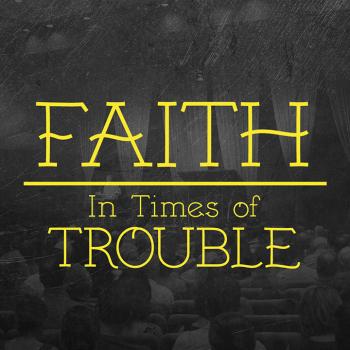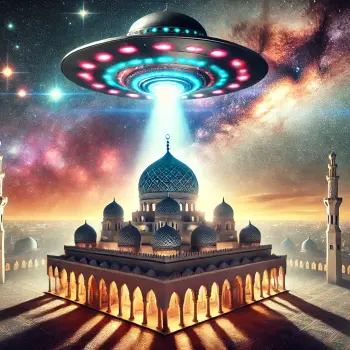Lectionary Reflections: Year A
Second Sunday in Lent
March 20, 2011
Genesis 12:1-4a
I name this brief passage in Genesis the lynchpin of the Bible, and by the Bible I mean both of the testaments. On Lent's first Sunday we explored the famous passage from Genesis that includes both the creation of the earth and its creatures by God (Gen. 2) and the refusal of the creatures, now two, to accept the free gift of God's garden and rather to live by their own fig-leaf rules (Gen. 3). The result was and is disaster. And the avalanche of evil continues after the first pair is expelled from the garden.
The contested relationship of the first two brothers in history results in fratricide, one of history's darkest crimes, a crime followed by a wild man named Lamech, who kills people if they only "touch" him (one possible reading of the verb that the NRSV translates "strike" at Gen. 4:23), demanding "seven-fold" vengeance for the paltry touch. Since seven is one of the Bible's complete numbers, Lamech would gladly see the whole world emptied of life if any one dare touch or strike him.
Little wonder that the flood becomes necessary to cleanse the world of such evil. Noah is chosen to survive, not because of any special gift on his part, but merely because he "found favor" in God's eyes (Gen. 6:8). The flood comes, and all life is blotted out, save the boat bobbing on the raging waters. When the waters recede, and the various birds have done their work of discerning the drying land, Noah hops from the ark and sacrifices a whole burnt offering to God (Gen. 8:20). God "smells the pleasing odor" (medium rare?), and then announces that "never again will I curse the ground because of humankind, for (even though?) the inclination of the human heart is evil from youth" (Gen. 8:21). We all remember the special reason for the coming of the flood in the first place: "every inclination of the thoughts of their hearts was only evil continually ("all day long," Gen. 6:5). In other words, the flood has not changed the human beings one whit! It is in fact God who has changed, withholding the divine anger in the face of the terrible shortcomings of the human creatures. That is what we can call grace.
And those human shortcomings are all too quickly in evidence as Noah plants a vineyard, over-indulges in the product, lies naked in his tent, and thereby destroys his family (Gen. 9:20-27). Though the tradition has regularly blamed the son, Ham, for this calamity, the story plainly blames the drunken patriarch. In any case, the result is a separated creation, filling the earth, but not as God had commanded in Genesis 1:28. These angry humans are uncommunicative, separate, divided one from another. The story of the tower of Babel makes that point.
Just as the human beings in the garden tried to solve their first problem of nakedness by ridiculously sewing fig leaves together as an absurd covering, so the humans at the tower try to join themselves together by attempting to build a tower "with its top in the sky" (Gen. 11:4), using "mud brick and pitch" to do so. Any Israelite knows that the only proper building material is stone, joined together by mortar. An Israelite would not attempt to build an outhouse out of mud brick and pitch!
And besides, though the builders may think that the tower's top is in the sky, God cannot even see the puny thing from God's vantage and must "come down" to have a look (Gen. 11:5)! After the tower story, God's hope for "fruitfulness, multiplication, and earth filling" (Gen. 1:28) has instead turned into multiple unrelated languages and thoroughly separate humans. And that leads us to God's next attempt to reconstitute the world of shalom (unity, oneness) that God had in mind from the first.
Instead of choosing representative humans to effect the work of shalom, God now heads off to one particular land and points to one special person to make the earth whole again. "Now YHWH said to Abram ("great father"), 'Go from your country, your kindred, and your father's house to the land that I will show you" (Gen. 12:1). Note the cascading difficulty of what Abram is asked to do. He must leave country (difficult), and kindred (literally "those born with him," a harder task), and the house of his own father (hardest of all) to go to a land he has never seen. No reason is given for Abram's choice, just like Noah, though many a fanciful tale has grown up around the event. The reason for the choice has nothing to do with Abram and everything to do with God's special concerns for the world.
"I will make you a great nation, and I will bless you; and I will make your name great, so that you will be a blessing" (Gen. 12:2). Huge implications are locked into that sentence. "Great" can mean large, but it can also mean important, significant, essential. God's blessing is crucial if this man is to perform his appointed task. Unless the blessing of God falls, no one may work the thing God has in mind. Abram's very name, his existence, his person, will become great. But that greatness will not consist of power or fame or wealth or status. True greatness results in blessing, in passing on to others what God has so freely given you.





